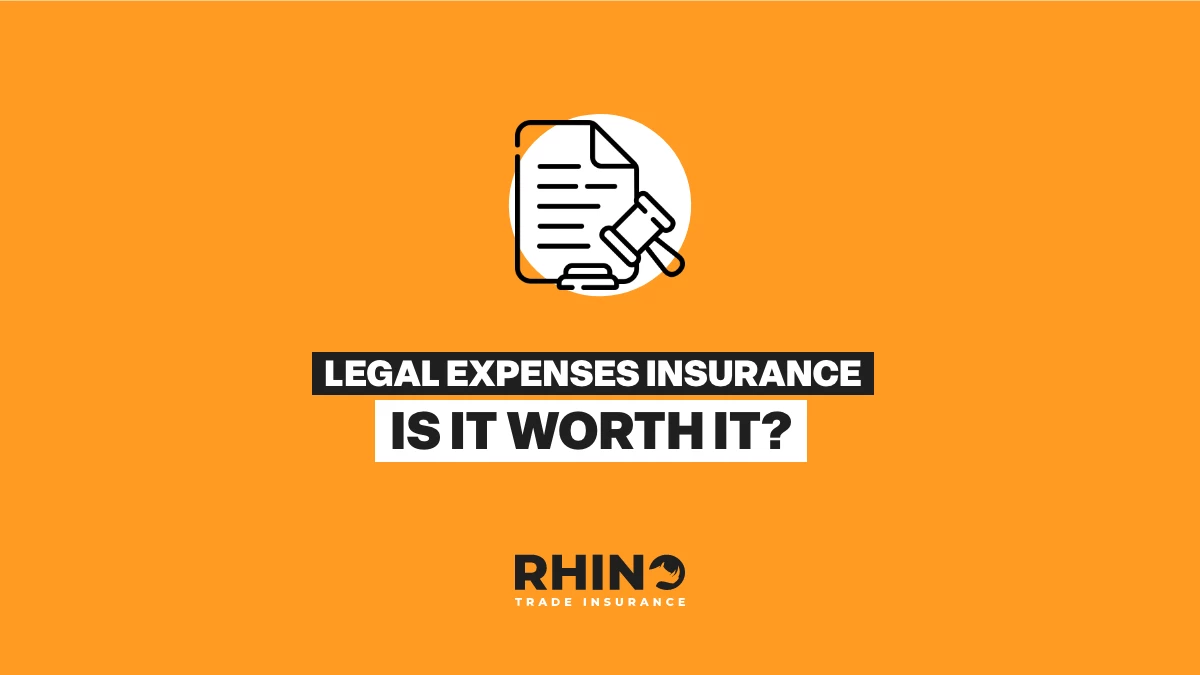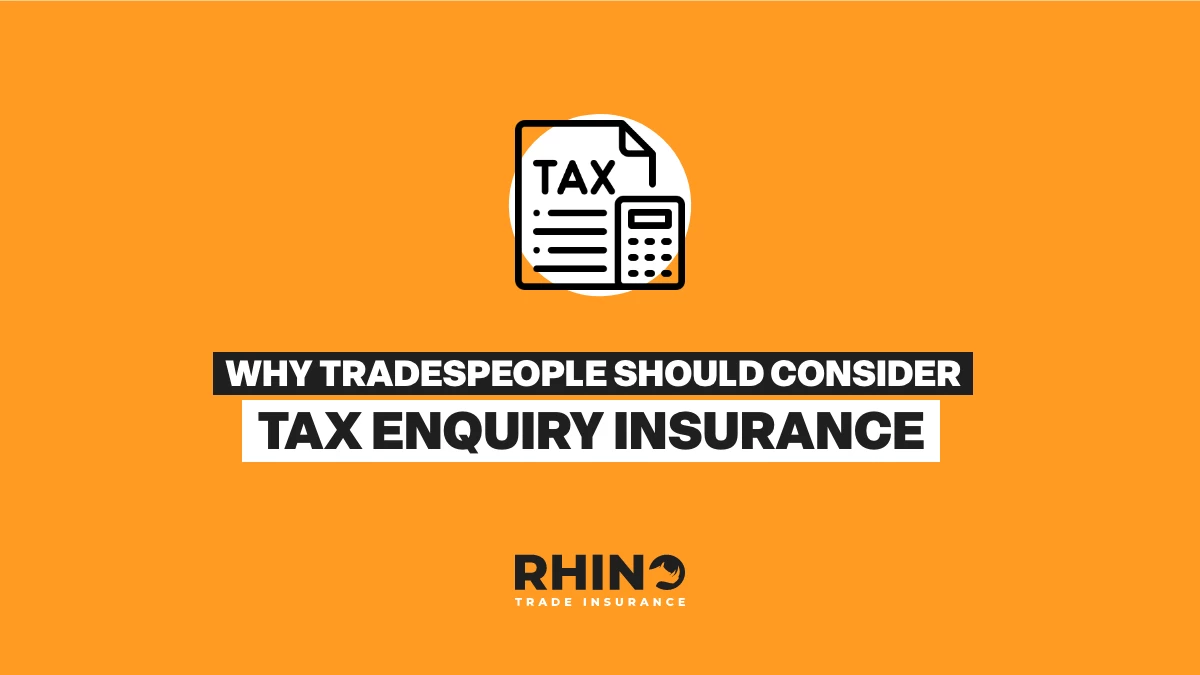
Legal Expenses Insurance – Is it Worth It?
Legal Expenses Insurance for tradespeople explained—what it covers, when you might need it, and how it protects against costly legal fees.
Trade insurance plays a crucial role in protecting businesses against potential financial losses resulting from unanticipated events and risks associated with your specific trade.
Whether a company engages in electrical work, woodwork, plumbing or something else, trade insurance cover is essential. However, the cost of trade insurance premiums can vary significantly from one business to another.
In this article, Rhino Trade Insurance will explore the key factors that affect trade insurance premiums so that you have a picture of what to expect when getting a quote.
Insurance can be difficult to understand, causing you to question if you took out the proper cover in the first place. But that doesn’t mean it’s not extremely important. Being a tradesperson exposes you to risks and dangers on-site, so it's imperative to safeguard your company in case something goes wrong.
At Rhino, we don't dabble in fancy insurance lingo that leaves you scratching your head. We created simple-to-understand insurance packages that cover your trade business so that your business won’t go under due to costs if a claim is made.
We take pride in offering clear quotes and straightforward cover. When it comes to trades, we protect almost every trade you can think of - so with that said, we want you to understand how our quotes are calculated and what information generally goes into them.
Nature of your Business
The type of business and the industry you operate in can have a considerable impact on your trade insurance premiums.
Industries with higher ingrained risks, such as construction, building, engineering or manufacturing, may face higher premiums due to the increased likelihood of accidents, liability claims, or damage/injury to goods or people.
On the other hand, businesses engaged in less risky sectors like Car Valets, Catering or Potters may find lower premiums.
Business Size and Revenue
The size and revenue of your business are influential determinants of trade insurance premiums.
Large businesses generally face higher premiums due to the scale of their operations and the potential for more significant claims.
Insurers will consider the annual turnover and the number of employees to assess the risk exposure of your firm. Smaller businesses, with lower revenues and fewer employees, may be eligible for lower premiums.
Amount and size of contracts
The volume of trade work you conduct, and the scale of these projects can have an impact on your insurance premiums.
Larger-scale trade contracts often mean greater risk exposure, such as more people on the job, more materials, bigger tools and machinery and more impact on the general public.
Consequently, businesses that engage in large-scale projects may face higher premiums as insurers account for the increased level of potential losses.
Claims History
A business's claims history is a critical factor in determining trade insurance premiums.
Insurers assess past claims and payout records to evaluate the risk profile of a company. Trade businesses with a history of frequent or high-value claims may experience higher premiums.
Conversely, companies with a clean claims history are typically rewarded with lower premiums, as they are perceived as lower-risk clients.
You can read all you need to know about how claims history affects your insurance price here.
Risk Management Practices
Effective risk management practices adopted by a business can positively influence trade insurance premiums.
Insurers will assess a company's risk management strategies, including safety protocols, quality control measures, supply chain management, contingency plans and health and safety procedures.
Businesses that demonstrate robust risk mitigation procedures and have invested in procedures and employee training are often viewed as lower risk, potentially leading to lower premiums.
Risks are always apparent in the building industry, and we wrote about some of the top accidents on-site here.
Cover Limits
The level of coverage chosen by a trade business will influence insurance premiums.
Higher cover limits typically lead to higher premiums, as the insurer bears more risk of a large payout. Tradesmen and women should carefully evaluate their risk tolerance and financial capabilities when deciding on cover limits by balancing the desire for comprehensive cover with the affordability of premiums.
Fortunately for those of you considering Rhino, we provide efficient, effective and seriously affordable cover - some of the cheapest on the market. You can get a quote in seconds with our super-fast quote engine, and we believe you won't be disappointed with the price. Find out more here.
Trade insurance premiums are influenced by various factors that reflect the unique characteristics of a business, its operations, and the risks associated with the work. Understanding these factors and their impact on premiums is key for businesses to make informed decisions regarding their insurance cover.
Businesses can optimise their trade insurance premiums and protect themselves against potential financial losses by effectively managing risk, maintaining a favourable claims history, and choosing an excellent, low-cost insurance provider like Rhino Trade Insurance.
We are able to offer exceptional cover for almost every aspect of your trade. With thousands of real tradespeople rating us five-star, along with a plethora of awesome products, you'll find it hard to select a better trade-only insurer.
Our policies can consist of the following:
Call the Rhino Trade Insurance team at 0116 243 7904 if you have any questions about how our great protection options may benefit your business. Alternatively, visit our website for all the details you could need. Here, you can easily acquire a quote in just 60 seconds.
Legal Expenses Insurance for tradespeople explained—what it covers, when you might need it, and how it protects against costly legal fees.
Worried about a tax investigation? With HMRC cracking down in 2025, Tax Enquiry Insurance from Rhino gives UK tradespeople expert protection and peace of mind.
Rhino Trade Insurance CEO Troy Stevens joins industry leaders at the House of Commons to discuss the rising issue of tool theft—highlighting its impact on UK tradespeople and the importance of awareness and protection.
Tell us your trade and get a tailored insurance quote for your business in seconds
Our team of experts are available to talk to Mon-Fri 08.30-17.30 and Sat 10.00-14.00

